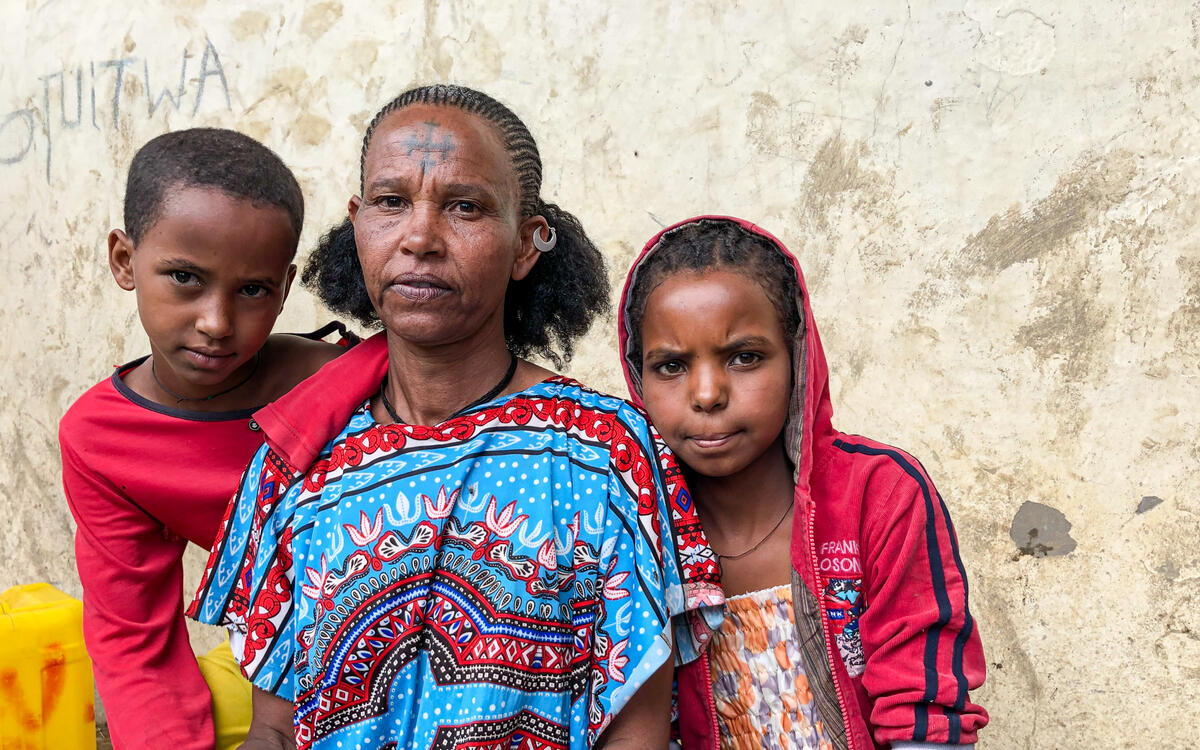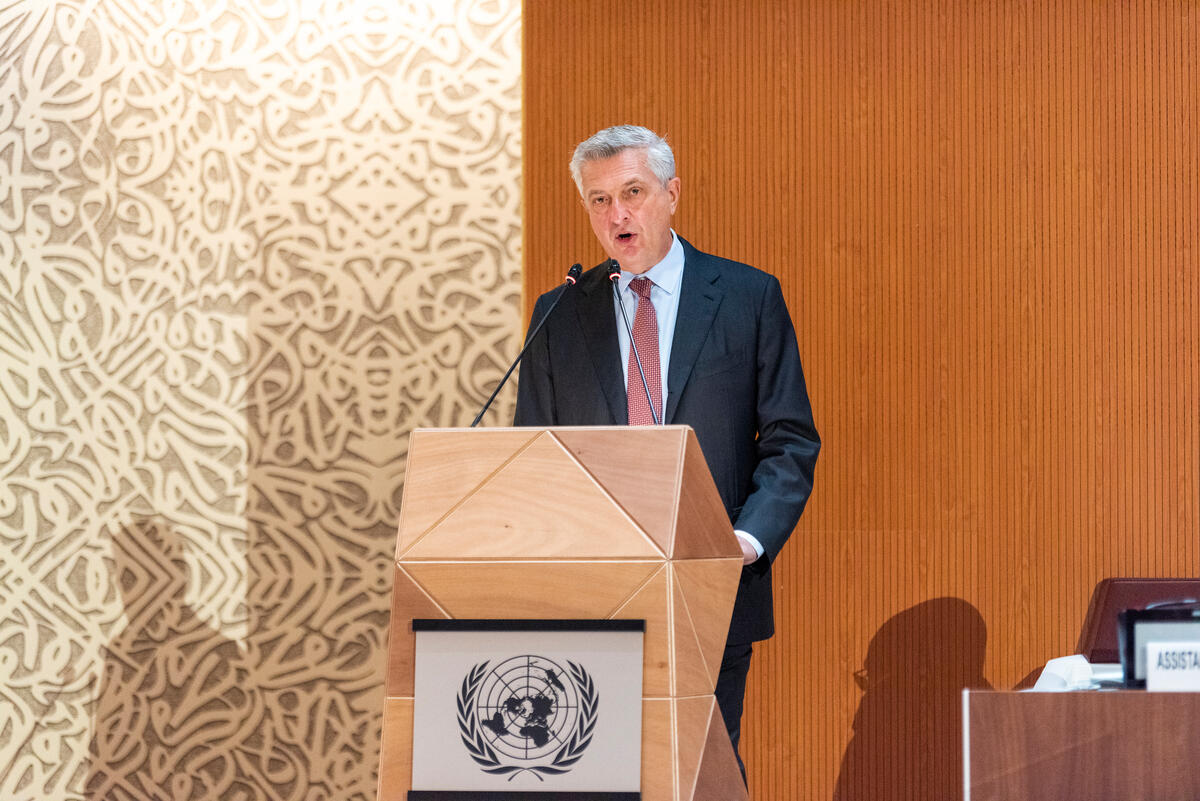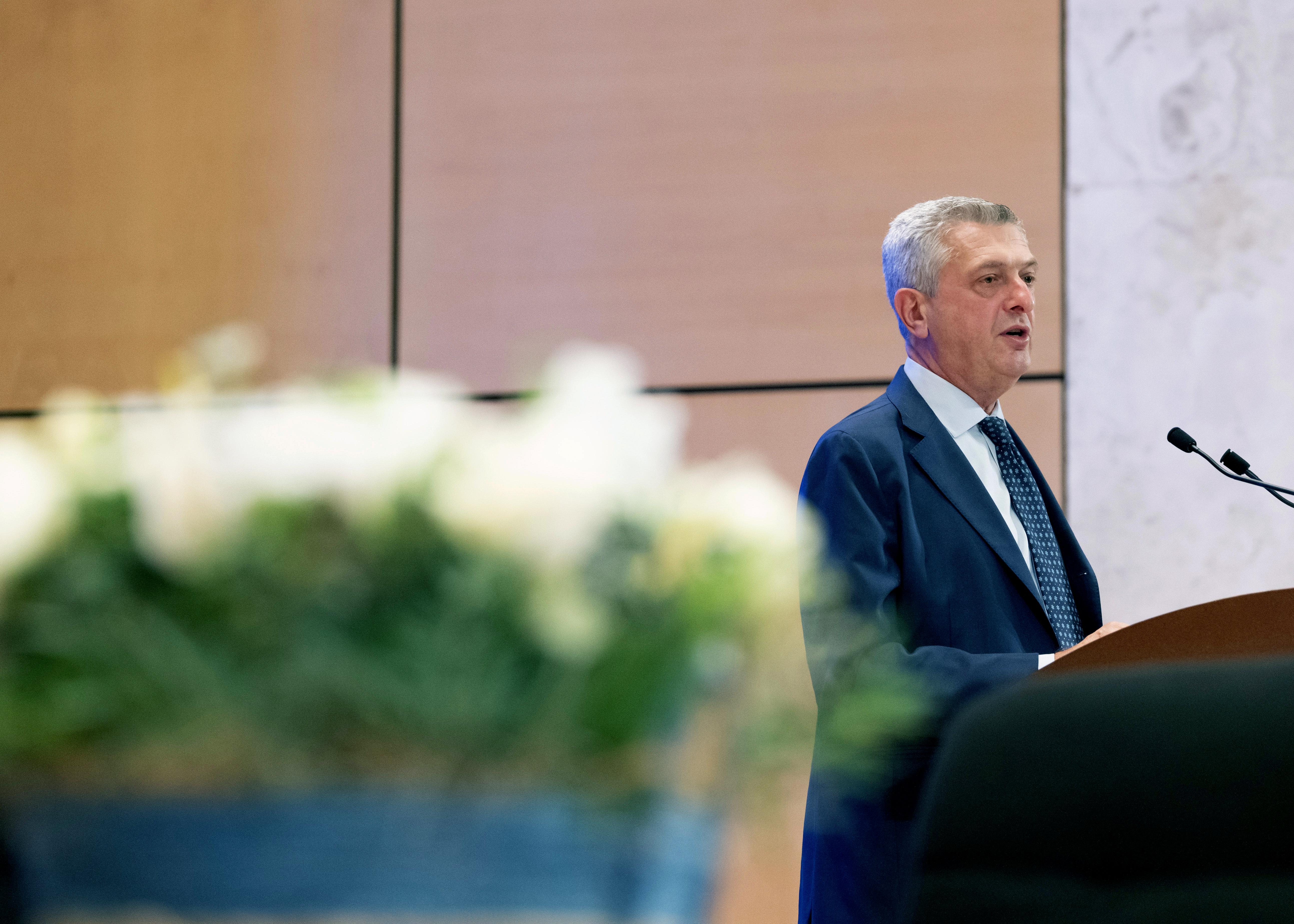Lubbers opens annual Executive Committee meeting
Lubbers opens annual Executive Committee meeting
30 September 2002
GENEVA - UN High Commissioner for Refugees Ruud Lubbers on Monday outlined his vision for an effective, efficient and truly multilateral UNHCR that is properly equipped to meet new refugee protection challenges in a rapidly changing world.
Opening the 53rd annual session of UNHCR's governing Executive Committee, Lubbers said a recent 18-month round of Global Consultations on international protection had provided a blueprint for the future - the "Agenda for Protection." The Agenda, which is expected to be endorsed during the five-day meeting of the 61-nation governing body, sets out clear goals and objectives and enumerates specific activities that over a period of years will improve the protection of refugees and asylum seekers worldwide.
Listing the three main themes of the Agenda as better refugee protection, more durable solutions and improved international burden sharing, Lubbers said, "the time has now come for action."
"But protection work today demands new tools, new multilateral commitments to ensure burden sharing and durable solutions," he said. "This requires new strategies, new thinking and new partnerships. We must now build on the Global Consultations process by enhancing international cooperation and burden sharing."
While hailing the unanimous reaffirmation by governments last December of the 1951 Refugee Convention - the cornerstone of international refugee law - Lubbers said it had nevertheless "become clear that on its own, the Convention does not suffice."
"What is needed is a new approach, which I call the 'Convention Plus,'" he said. "By that, I mean supplementing the Convention in areas that it does not adequately cover."
He cited a number of such areas that could be addressed by the Convention Plus approach, with countries in the North and South working together to find durable solutions for refugees. "It concerns comprehensive plans of action in cases of massive outflows," he said. "It concerns agreements on 'secondary movements,' defining the roles and responsibilities of countries of origin, transit, and potential destination, with regard to asylum seekers. It concerns better targeting of development assistance in regions of origin, helping refugee-hosting countries to facilitate local integration. It concerns post-conflict reintegration. And, last but not least, it concerns multilateral commitments for resettlement."
Lubbers also briefed members on the work of a small UNHCR team that is reviewing the agency's ability to carry out its mandate while examining future options for strengthening it as a multilateral institution.
"To be a truly multilateral institution, UNHCR also needs a broader financial basis, so that it can respond effectively to the demands being placed on it by the international community," he said. "Time and again, we speak about predictability [of funding]. But how can we make progress on this?"
The High Commissioner said he "cannot accept the continuing practice that the Executive Committee at large does not fund the budget which it approves every year." Currently, he said, UNHCR still faces a shortfall of about $80 million for its 2002 Annual Programme Budget, including some $25 million not covered by the agency's projections. Entering the fourth quarter, UNHCR was now "obliged to take additional steps" to address this shortfall through various reductions that on top of cuts earlier in the year "will have further severe consequences for refugees." Lubbers appealed to donors make good on their outstanding pledges and to come up with the remaining $25 million as well.
Reviewing the past year, Lubbers said the number of people in UNHCR's care fell from 21.8 million to 19.8 million, in a sign that some of the world's uprooted were able to go back to their homes or find other durable solutions. He cited Afghanistan, where more than 2 million refugees and internally displaced people have gone home since March despite continued problems in some parts of the country. Lubbers also mentioned newly emerging hope for refugee returns in several African countries, from Eritrea to Sierra Leone and Angola. But elsewhere in Africa, instability continued to drive people from their homes.
In West Africa, UNHCR had taken a series of actions to strengthen the protection of refugee women and children against the threat of sexual exploitation and abuse, he said. This included a new UNHCR Code of Conduct. A report by the UN Office of Internal Oversight Services on the issue of sexual exploitation in West Africa would be released soon, said Lubbers, adding that the impression given in a consultants report earlier this year of widespread abuse by aid workers had "unfairly tarnished the reputation and credibility of our staff."
"Having said this, the issue of sexual exploitation is very real, as we suspected when we first commissioned the report," he said. "As I have said all along, even one case is one too many. It is good that there is now much more awareness of it. This heightened global awareness has given UNHCR and its humanitarian partners an opportunity to take a co-ordinated and comprehensive approach in dealing with sexual exploitation and abuse not only in Africa, but globally."
He also expressed concern about the detention of asylum seekers. While many states have been able to manage their asylum systems without detentions, a more general trend towards increased use of detention - often on a discriminatory basis - is worrying. Lubbers also criticized some parts of the media and politicians who continue to demonize asylum seekers and refugees, particularly during election campaigns.









